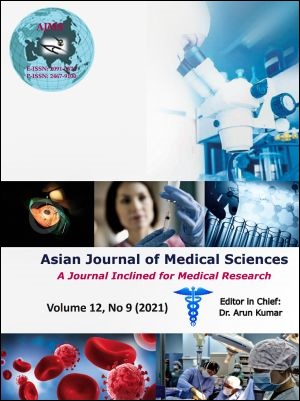Effect of some wild egyptian medicinal plants on HAV
Keywords:
Folk medicine, Hepatitis A virus (HAV), Jaundice, Natural medicine, Wild plantsAbstract
Background: Folk Egyptian medicine considered from the most important source of the use of wild plants in medication. Wild plants are considered a perfect source of natural compounds that have been used as antimicrobial andante virus activities.
Aims and Objective: The aim of the current study was to investigate the effect of the commonly used wild plants in the treatment of jaundice and they effect on HAV. This article provides much-needed insight into the effect of wild plants on the hepatitis A virus to shed more light on the important subject, which is unfortunately poorly investigated.
Materials and Methods: In this investigation, the aqueous plant extracts of twenty-five wild Egyptian species, 16 perennials, and 9 annuals; three concentrations, 1%, 3% & 5%; were tested for HAV replication by using PA and PCR techniques. Questionnaires and interviews with Bedouins have been carried to know the most used species in the treatment of jaundice, and the usage values were calculated. Those species were collected from their habitats, rare ones purchased and reviewed their identifications and used in this work. Fecal and blood samples were taken from 9-10Y old patients, 35 girls and 25 boys.
Results: The PA test revealed that 16 species out of twenty-five gave positive results, while the rest of the species gave negative results on Vero cells. Twelve of the sixteen species were perennial species, and the rest are annuals. The Plaque assay results showed that the most effective aqueous extract species, with the three concentrations, on HAV activity were those of Salvia verbennaca, Mentha microphylla, Ocimum basilicum, Cassia senna, Solenostemma argel, and Thymus capitatus, respectively. PCR test has been carried for the first three species and gave very faint nucleic acid tapes, which means that the plant extract of these species, the three concentrations, minimize the virus activity by a way or another. Samples from the patients tested for the antibodies for IgM and IgG using the ELISA test. Within both the females (58%) and males (42%), 6% have positive antibodies for IgM, while 36% in females and 34% in males’ have positive antibodies for IgG and 8% females and 10% males have both antibodies (IgM & IgG).
Conclusion: Wild plants, especially those with essential oils can tolerate the Hepatitis A virus (HAV) activity and reduce its symptoms.
Downloads
Downloads
Published
How to Cite
Issue
Section
License
Copyright (c) 2021 Asian Journal of Medical Sciences

This work is licensed under a Creative Commons Attribution-NonCommercial 4.0 International License.
Authors who publish with this journal agree to the following terms:
- The journal holds copyright and publishes the work under a Creative Commons CC-BY-NC license that permits use, distribution and reprduction in any medium, provided the original work is properly cited and is not used for commercial purposes. The journal should be recognised as the original publisher of this work.
- Authors are able to enter into separate, additional contractual arrangements for the non-exclusive distribution of the journal's published version of the work (e.g., post it to an institutional repository or publish it in a book), with an acknowledgement of its initial publication in this journal.
- Authors are permitted and encouraged to post their work online (e.g., in institutional repositories or on their website) prior to and during the submission process, as it can lead to productive exchanges, as well as earlier and greater citation of published work (See The Effect of Open Access).




